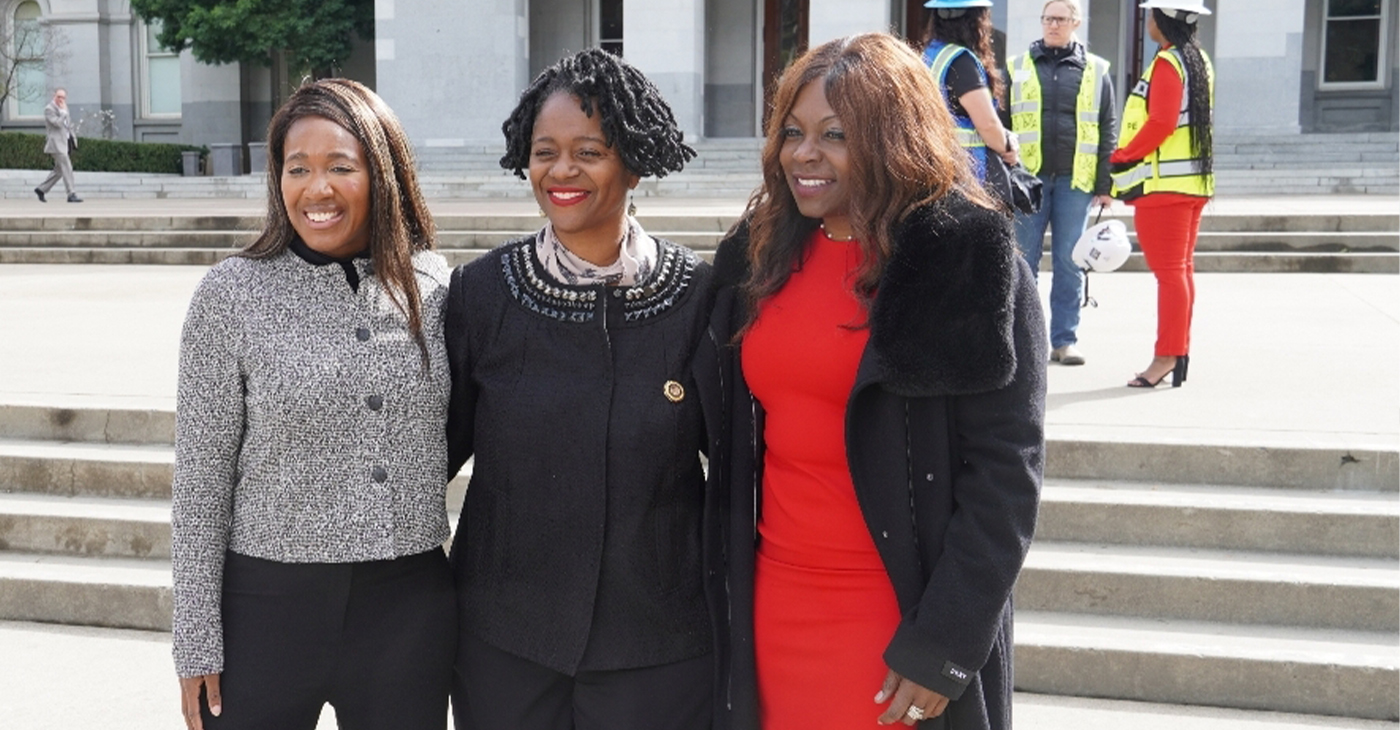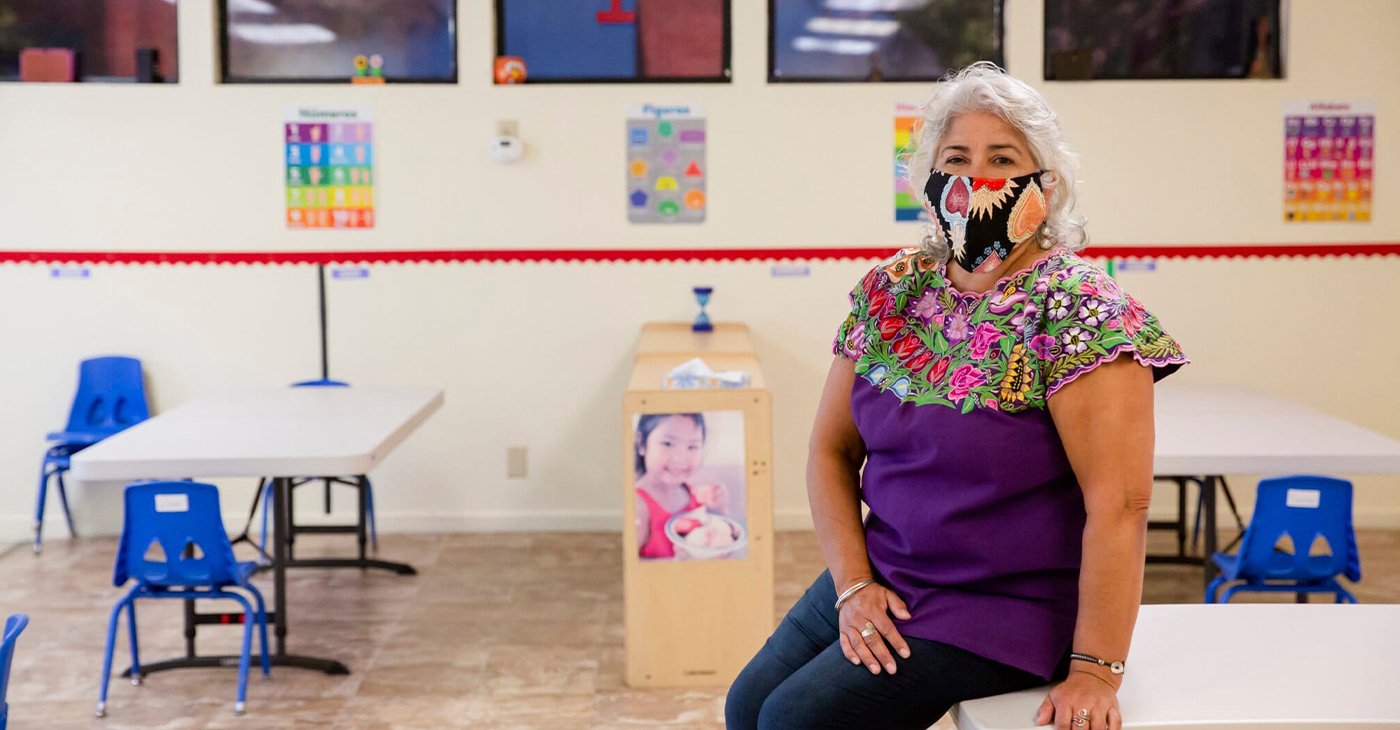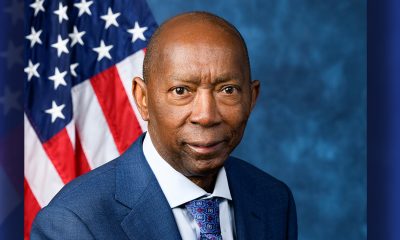Politics
CBC Seeks GOP Cooperation on Economic Challenges

Rep. G. K. Butterfield (D-N.C.), the chairman of the CBC said, “We’ve got to get smarter on crime and there are some Republicans who get that.” (Courtesy Photo)
By Freddie Allen
NNPA Senior Washington Correspondent
WASHINGTON (NNPA) – Working across the aisle with Republicans on criminal justice reform might be the best shot that the Congressional Black Caucus (CBC) has to address the economic challenges facing the Black community before the 2016 presidential election, according to the head of the caucus.
“We are having bipartisan conversations on the whole question of criminal justice reform,” said Rep. G. K. Butterfield (D-N.C.), the chairman of the CBC. “There is a group of Republican members that are thoughtful and they are beginning to think through the broken criminal justice system that we have and they are now indicating to us they’re willingness to engage in some type of legislation that will begin to address it.”
As states and jurisdictions weigh the financial burden of mass incarceration against more fiscally responsible criminal justice policies, more lawmakers are considering diversionary programs, decriminalizing small amounts of marijuana to decrease the load on their jails and court systems, and making it easier for ex-offenders to find jobs that pay a living wage after they’ve paid their debt to society.
The Vera Institute of Justice, an independent research and policy group, reported that taxpayers in 40 states shelled out nearly $40 billion in FY2010 to cover the costs of housing inmates and running prisons and jails.
Butterfield speculated that some of his Republican colleagues might just be playing politics with criminal justice reform, but he still welcomed their support.
“We’ve got to get smarter on crime and there are some Republicans who get that,” said Butterfield, adding that the U.S. Congress might see a viable, bipartisan bill on criminal before the August break.
The Joint Economic Committee, a bipartisan panel that studies the U.S. economy, laid out the economic challenges facing the Black community in a recent report. The committee is composed of 10 senators and 10 members of the House of Representatives.
“More than half (51.4 percent) of Black families with children under 18 are headed by a single mother, compared to one-fifth (19.1 percent) of White families with children, and nearly 47 percent of families headed by a Black single mother are in poverty,” stated the report.
The report continued: “The median income of African American households is just $34,600 – nearly $24,000 less than the median income of White households. Black Americans are almost three times more likely to live in poverty than White Americans.”
The report said that at the peak of the Great Recession, one 1 in 6 Blacks was unemployed.
“African-American homeowners who took out mortgages between 2004 and 2008 were almost twice as likely as white homeowners to have lost their home to foreclosure by 2011, according to the Center for Responsible Lending, the report stated. “One-in-ten black homeowners who took out mortgages at the height of the housing boom eventually lost their home to foreclosure.”
The report also included a state-by-state analysis of the poverty and unemployment rates for Blacks and Whites.
The poverty rate for Blacks was highest in Maine at 50.7 percent (1.4 percent Black population) compared to the White poverty rate, which was 13.2 percent. According to the report, Blacks living in Hawaii (2.5 percent of the population) had the lowest poverty rate at 5.8 percent and the poverty rate for Whites living in the Aloha State was 11 percent.
In Washington, D.C., where 48.8 percent of population is Black, the Black unemployment rate is 15.1 percent, five percentage points higher than the national average for Blacks in the labor force.
The jobless rate for Blacks was the highest in Wisconsin at 19.7 percent (6.2 percent Black population), more than four times higher than the 4.3 percent White jobless rate. Although the unemployment rate for Blacks was the lowest in Utah at 1.7 percent (1.6 percent Black population), the poverty rate for Blacks was 34.5 percent in the state, compared to a 9.9 percent White poverty rate.
Maryland was the only state where more than 30 percent of the population is Black and the unemployment rate was less than the national average. In Mississippi (35.9 percent Black), Georgia (31.2 percent Black) and Louisiana (31.3 percent Black) the Black jobless rate was higher than the national average.
Although Rep. Butterfield said that he wasn’t surprised by most of the findings in the report, the wealth gap between Blacks and Whites was stunning.
According to the report, “White households typically have 13 times more wealth than black households. In 2013, the median net worth of African American households was only $11,000 compared to about $142,000 for white households—a difference of $131,000.”
When it comes to solutions to the economic challenges facing the Black community, Rep. Butterfield said that targeted funding leads the list.
In the CBC’s alternative budget for FY2016, the group advocated for the “the use of the 10-20-30 policy for federal spending.”
The plan called for, “at least 10 percent of the federal funds in certain accounts be directed to certain areas that have had a poverty rate of 20 percent for the last 30 years.”
The Community Development Financial Institutions Fund (CDFI), a bipartisan program crafted to promote access to capital for businesses and economic growth in low-income underserved communities, determined that 20 percent or more residents in 384 counties, many of them in the South and governed by Republican lawmakers, have lived in “persistent poverty” for more than 30 years.
Under the direction of the Secretary of Agriculture Tom Vilsack, the United States Department of Agriculture developed the “StrikeForce Initiative for Rural Growth and Opportunity” in an effort to tackle rural poverty, especially in communities where the child poverty rate was roughly 25 percent.
“Since 2010, these efforts have invested over $16.5 billion to create jobs, build homes, feed kids, assist farmers, and conserve the natural resources across twenty states,” according to the USDA’s website. “In 2015, StrikeForce expanded to include Oklahoma and Puerto Rico.”
More than $6.5 billion were invested in StrikeForce states in 2014 alone. Rep. Butterfield wants to see that program expanded to other federal agencies.
If lawmakers can craft similar programs for the Transportation Department, Health and Human Services and even the Department of Defense, Rep. Butterfield said, “We can begin to see a difference.”
But with the Republicans controlling the House of Representatives and the United States Senate, Rep. Butterfield admitted that finding legislative solutions for problems affecting the Black community is going to be an uphill battle and as both parties rush into 2016 presidential elections those talks may get left behind altogether.
“The tragedy is that we’re now entering the presidential election season and not a whole lot happens during a presidential election season. So our ability to legislate is going to be affected,” said Butterfield.
In the press release about the JEC report, Rep. Don Beyer (D-Va.) said that even as the country recovers from the worst financial downturn since the Great Depression, African Americans still face persistent economic barriers.
Rep. Byer continued: “If we are to meet the challenge of the promise of equality in America we need to address these inequities in employment, income, wealth, housing and education through policies designed for inclusive prosperity.”
Butterfield said that designing those policies will take higher levels of civic engagement in the Black community and citizens paying attention to what is happening in the world and connecting it to their lives.
“Once they realize what the politicians are doing will affect their bank account and affect their quality of life, then they will begin to participate in the political process,” said Rep. Butterfield. “But if we go to sleep in 2016 and don’t have the Obama turnout that we had in ’08 and ’12 and we lose control of the White Hose, we’re going to have some painful years ahead that nobody wants to see.”
###
Activism
Sen. Lola Smallwood-Cuevas Honors California Women in Construction with State Proclamation, Policy Ideas
“Women play an important role in building our communities, yet they remain vastly underrepresented in the construction industry,” Smallwood-Cuevas stated. “This resolution not only recognizes their incredible contributions but also the need to break barriers — like gender discrimination.

By Antonio Ray Harvey, California Black Media
To honor Women in Construction Week, Sen. Lola Smallwood-Cuevas (D-Los Angeles), a member of the California Legislative Black Caucus (CLBC), introduced Senate Concurrent Resolution (SCR) 30 in the State Legislature on March 6. This resolution pays tribute to women and highlights their contributions to the building industry.
The measure designates March 2, 2025, to March 8, 2025, as Women in Construction Week in California. It passed 34-0 on the Senate floor.
“Women play an important role in building our communities, yet they remain vastly underrepresented in the construction industry,” Smallwood-Cuevas stated. “This resolution not only recognizes their incredible contributions but also the need to break barriers — like gender discrimination.
Authored by Assemblymember Liz Ortega (D-San Leandro), another bill, Assembly Concurrent Resolution (ACR) 28, also recognized women in the construction industry.
The resolution advanced out of the Assembly Committee on Rules with a 10-0 vote.
The weeklong event coincides with the National Association of Women In Construction (NAWIC) celebration that started in 1998 and has grown and expanded every year since.
The same week in front of the State Capitol, Smallwood, Lt. Gov. Eleni Kounalakis, Assemblymember Josh Hoover (R-Folsom), and Assemblymember Maggie Krell (D-Sacramento), attended a brunch organized by a local chapter of NAWIC.
Two of the guest speakers were Dr. Giovanna Brasfield, CEO of Los Angeles-based Brasfield and Associates, and Jennifer Todd, President and Founder of LMS General Contractors.
Todd is the youngest Black woman to receive a California’s Contractors State License Board (A) General Engineering license. An advocate for women of different backgrounds, Todd she said she has been a woman in construction for the last 16 years despite going through some trying times.
A graduate of Arizona State University’s’ Sandra Day O’Connor College of Law, in 2009 Todd created an apprenticeship training program, A Greener Tomorrow, designed toward the advancement of unemployed and underemployed people of color.
“I always say, ‘I love an industry that doesn’t love me back,’” Todd said. “Being young, female and minority, I am often in spaces where people don’t look like me, they don’t reflect my values, they don’t reflect my experiences, and I so persevere in spite of it all.”
According to the U.S. Bureau of Labor Statistics, only 11.2% of the construction workforce across the country are female. Overall, 87.3% of the female construction workers are White, 35.1% are Latinas, 2.1% are Asians, and 6.5% are Black women, the report reveals.
The National Association of Home Builders reported that as of 2022, the states with the largest number of women working in construction were Texas (137,000), California (135,000) and Florida (119,000). The three states alone represent 30% of all women employed in the industry.
Sen. Susan Rubio (D-Baldwin Park) and the California Legislative Women’s Caucus supported Smallwood-Cuevas’ SCR 30 and requested that more energy be poured into bringing awareness to the severe gender gap in the construction field.
“The construction trade are a proven path to a solid career. and we have an ongoing shortage, and this is a time for us to do better breaking down the barriers to help the people get into this sector,” Rubio said.
Bay Area
Five Years After COVID-19 Began, a Struggling Child Care Workforce Faces New Threats
Five years ago, as COVID-19 lockdowns and school closures began, most early educators continued to work in person, risking their own health and that of their families. “Early educators were called essential, but they weren’t provided with the personal protective equipment they needed to stay safe,” said CSCCE Executive Director Lea Austin. “There were no special shopping hours or ways for them to access safety materials in those early and scary months of the pandemic, leaving them to compete with other shoppers. One state even advised them to wear trash bags if they couldn’t find PPE.”

UC Berkeley News
In the first eight months of the COVID-19 pandemic alone, 166,000 childcare jobs were lost across the nation. Significant recovery didn’t begin until the advent of American Rescue Plan Act (ARPA) Child Care Stabilization funds in April 2021.
Today, child care employment is back to slightly above pre-pandemic levels, but job growth has remained sluggish at 1.4% since ARPA funding allocations ended in October 2023, according to analysis by the Center for the Study of Child Care Employment (CSCCE) at UC Berkeley. In the last six months, childcare employment has hovered around 1.1 million.
Yet more than two million American parents report job changes due to problems accessing child care. Why does the childcare sector continue to face a workforce crisis that has predated the pandemic? Inadequate compensation drives high turnover rates and workforce shortages that predate the pandemic. Early childhood educators are skilled professionals; many have more than 15 years of experience and a college degree, but their compensation does not reflect their expertise. The national median hourly wage is $13.07, and only a small proportion of early educators receive benefits.
And now a new round of challenges is about to hit childcare. The low wages paid in early care and education result in 43% of early educator families depending on at least one public support program, such as Medicaid or food stamps, both of which are threatened by potential federal funding cuts. Job numbers will likely fall as many early childhood educators need to find jobs with healthcare benefits or better pay.
In addition, one in five child care workers are immigrants, and executive orders driving deportation and ICE raids will further devastate the entire early care and education system. These stresses are part of the historical lack of respect the workforce faces, despite all they contribute to children, families, and the economy.
Five years ago, as COVID-19 lockdowns and school closures began, most early educators continued to work in person, risking their own health and that of their families. “Early educators were called essential, but they weren’t provided with the personal protective equipment they needed to stay safe,” said CSCCE Executive Director Lea Austin. “There were no special shopping hours or ways for them to access safety materials in those early and scary months of the pandemic, leaving them to compete with other shoppers. One state even advised them to wear trash bags if they couldn’t find PPE.”
The economic impact was equally dire. Even as many providers tried to remain open to ensure their financial security, the combination of higher costs to meet safety protocols and lower revenue from fewer children enrolled led to job losses, increased debt, and program closures.
Eventually, the federal government responded with historic short-term investments through ARPA, which stabilized childcare programs. These funds provided money to increase pay or provide financial relief to early educators to improve their income and well-being. The childcare sector began to slowly recover. Larger job gains were made in 2022 and 2023, and as of November 2023, national job numbers had slightly surpassed pre-pandemic levels, though state and metro areas continued to fluctuate.
Many states have continued to support the workforce after ARPA funding expired in late 2024. In Maine, a salary supplement initiative has provided monthly stipends of $240-$540 to educators working in licensed home- or center-based care, based on education and experience, making it one of the nation’s leaders in its support of early educators. Early educators say the program has enabled them to raise wages, which has improved staff retention. Yet now, Governor Janet Mills is considering cutting the stipend program in half.
“History shows that once an emergency is perceived to have passed, public funding that supports the early care and education workforce is pulled,” says Austin. “You can’t build a stable childcare workforce and system without consistent public investment and respect for all that early educators contribute.”
The Center for the Study of Childcare Employment is the source of this story.
Alameda County
Trump Order Slashes Federal Agencies Supporting Minority Business and Neighborhood Development
The latest executive order targeted several federal agencies, including the Minority Business Development Agency (MBDA) and the Community Development Financial Institutions Fund, ordering that their programs and staff be reduced “to the minimum presence and function required by law.” The executive order targeted more agencies that Trump “has determined are unnecessary,” the order stated.

By Brandon Patterson
On March 14, President Trump signed an executive order slashing the operations of two federal agencies supporting growth in minority business and neighborhoods as he continued his attacks on programs supporting people of color and on the size of the federal bureaucracy.
The latest executive order targeted several federal agencies, including the Minority Business Development Agency (MBDA) and the Community Development Financial Institutions Fund, ordering that their programs and staff be reduced “to the minimum presence and function required by law.” The executive order targeted more agencies that Trump “has determined are unnecessary,” the order stated.
The MBDA’s mission is to “promote the growth and global competitiveness” of minority business enterprises, or MBEs. In 2023, according to its website, the agency helped MBEs access $1.5 billion in capital and facilitated nearly $3.8 billion in contracts awarded to minority business enterprises. It also helped MBEs create or sustain more than 19,000 jobs nationwide. Similarly, the CDFI Fund supports economic growth in under-invested communities by providing funding and technical assistance to local CDFIs, including banks, loan funds, and credit unions, that support community development projects in cities across the country. In 2023, the fund supported more than 1,400 local CDFIs across the country, including more than 80 in California — among the highest number for any state in the country.
The MBDA has local satellite business centers operated by organizations that support minority clients with services such as business consulting, contract bid preparation, loan packaging, and accessing capital funding. The San Francisco Bay Area business center is San Jose, operated by San Francisco-based organization Asian, Inc. Meanwhile, local Oakland CDFIs supported by the federal CDFI fund since 2021 include Habitat Community Capital, TMC Community Capital, Gateway Bank Federal Savings Bank, Beneficial State Bancorp, Inc., and Main Street Launch.
“It is clear that the hollowing out of the CDFI Fund and MBDA is not being ordered because those programs have failed in their mission,” the CEO of Small Business Majority John Arensmeyer, a national organization that advocates for small businesses, said in a statement on Saturday. “Instead, it is yet another case of President Trump using DEI as a club to eviscerate programs that seek to level our economic playing field.”
Congresswoman Lateefah Simon also slammed the decision in a statement to the Oakland Post. “As a member of the House Small Business Committee who represents multiple CDFIs in CA-12, I believe Trump’s gutting of operations at the Minority Business Development Agency and at the Community Development Financial Institutions Fund is a direct attack on small businesses, communities of color and other underserved communities,” Rep. Simon said. “Both the MBDA and the CDFI Fund were created with bipartisan support to help historically underserved communities and small businesses — and both programs have helped to dramatically change the material realities of people and bolster entrepreneurship in the U.S. There is no logic to this decision. The point is discrimination and cruelty.”
-

 #NNPA BlackPress4 weeks ago
#NNPA BlackPress4 weeks agoTarget Takes a Hit: $12.4 Billion Wiped Out as Boycotts Grow
-

 Activism3 weeks ago
Activism3 weeks agoUndocumented Workers Are Struggling to Feed Themselves. Slashed Budgets and New Immigration Policies Bring Fresh Challenges
-

 #NNPA BlackPress4 weeks ago
#NNPA BlackPress4 weeks agoBREAKING Groundbreaking Singer Angie Stone Dies in Car Accident at 63
-

 Activism4 weeks ago
Activism4 weeks agoOakland Post: Week of February 26 – March 4, 2025
-

 Arts and Culture4 weeks ago
Arts and Culture4 weeks agoBeverly Lorraine Greene: A Pioneering Architect and Symbol of Possibility and Progress
-

 #NNPA BlackPress4 weeks ago
#NNPA BlackPress4 weeks agoNAACP Legend and Freedom Fighter Hazel Dukes Passes
-

 #NNPA BlackPress4 weeks ago
#NNPA BlackPress4 weeks agoTrump Kicks the Ukrainian President Out of the White House
-

 #NNPA BlackPress4 weeks ago
#NNPA BlackPress4 weeks agoApple Shareholders Reject Effort to Dismantle DEI Initiatives, Approve $500 Billion U.S. Investment Plan























































